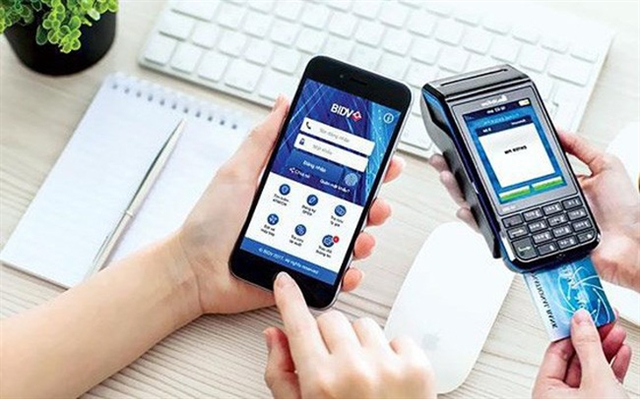Governor of the State Bank of Viet Nam Le Minh Hung has asked relevant agencies to help implement non-cash payments for public services, including tax, electricity, water, hospital and education fees.

Governor of the State Bank of Viet Nam (SBV) Le Minh Hung has asked relevant agencies to help implement non-cash payments for public services, including tax, electricity, water, hospital and education fees.
Under the instruction, Hung instructed the SBV’s branches in cities and provinces nationwide to propose effective measures for the People’s committees to further promote non-cash payments for public services as mentioned in the Government’s Decision No 241/QD-TTg.
Among the measures, the committees will direct public service providers in their cities and provinces to build information technology systems to enable it to connect with banks and payment intermediary service providers so the payment of public services will be made via bank accounts.
In addition, schools, hospitals and public service providers will install equipment and machines to accept bank cards and QR codes to ease the use of mobile devices and bank cards for payment, which is the same as the payment for goods purchased at stores and supermarkets.
According to Decision 241, Prime Minister Nguyen Xuan Phuc late last year approved a scheme to intensify payments for public services via banks, including tax, electricity, water, hospital and education fees.
Specifically, by 2020, 80 per cent of tax payment transactions in central-level and provincial-level cities are hoped to be implemented via banks, while all State treasuries will have cashless payment devices.
The scheme also targets non-cash payments being accepted by 70 per cent of power companies, 70 per cent of water companies, 100 per cent of universities and colleges and 50 per cent of hospitals in major cities.
The country will focus on developing new and modern payment methods, especially those suitable for rural areas, and for people who don’t have bank accounts.
Besides, it will also develop new multi-functional and multi-purpose bank cards that allow different forms of payments such as internet banking, non-touch and near-field communication payments.
More efforts will be made to ensure security and safety during transactions to gain consumer confidence, while authenticity measures will be intensified to avoid fraud, according to the decision. — VNS





